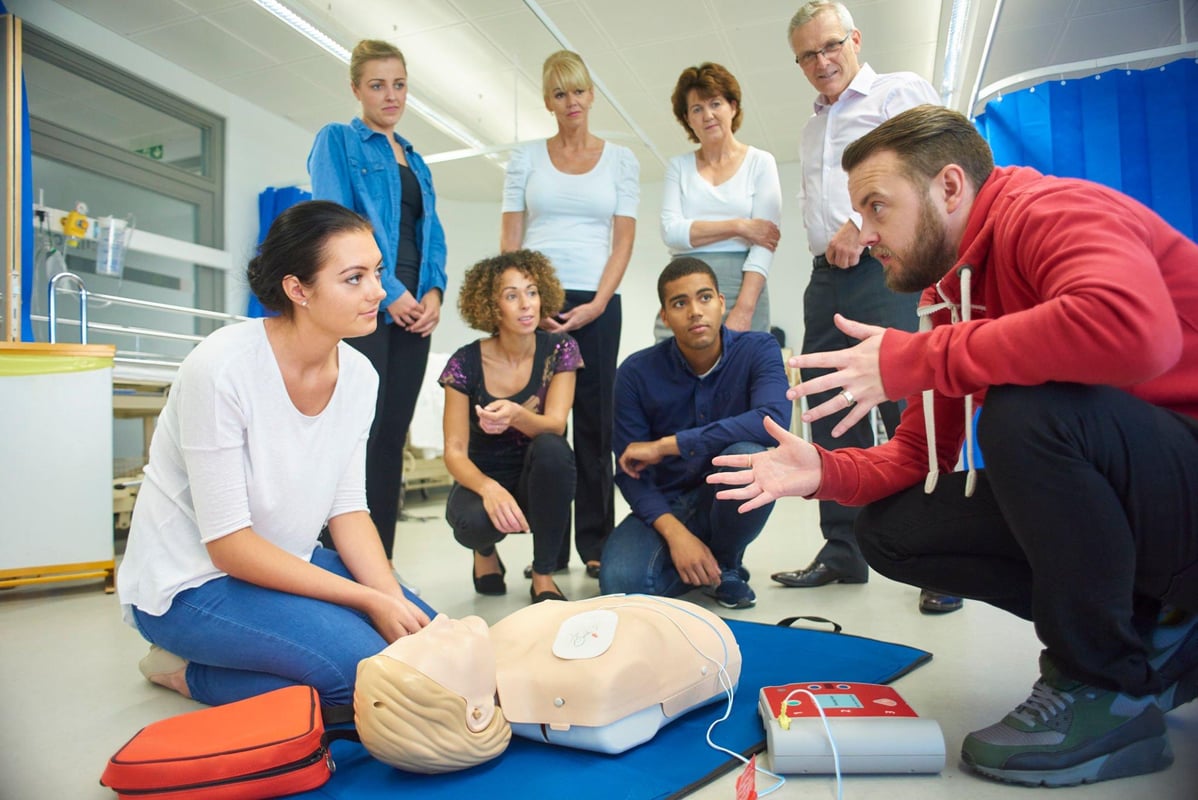How Long Does It Take to Become an Emergency Response Team Member?

Emergency response team members play a crucial role in providing immediate assistance during emergencies and natural disasters. They are trained to handle various situations and provide aid to those in need. If you're interested in becoming an emergency response team member, you might be wondering how long it takes to acquire the necessary skills and certifications. In this blog post, we will explore the training process and the time it takes to become a certified emergency response team member.
Emergency Response Team Member Training Requirements
To become a certified emergency response team member, you will need to meet certain training requirements. These requirements may vary depending on your location and the specific certification program you choose. However, some common training requirements include:
- First Aid and CPR Certification: Most emergency response team member programs require individuals to have a valid first aid and CPR certification. These certifications ensure that you have the necessary skills to provide immediate medical assistance.
- Physical Fitness: Emergency response team members need to be physically fit and capable of performing physically demanding tasks. Some programs may require individuals to pass a physical fitness test as part of the training process.
- Background Check: Due to the nature of their work, emergency response team members may be required to undergo a background check. This is to ensure the safety of both the team members and the individuals they assist.
- Age Requirement: Some certification programs may have age requirements. For example, you may need to be at least 18 years old to enroll in certain advanced certification programs.
It's important to research the specific requirements of the program you are interested in to ensure you meet all the necessary criteria.
How to Get a Job After Classes
After completing your emergency response team member certification classes, you are ready to start your career in this field. Here are some steps you can take to increase your chances of securing a job:
- Gain Experience: Look for opportunities to gain practical experience in emergency response. Volunteer with local organizations or participate in internships to build your resume and demonstrate your dedication to the field.
- Network: Connect with professionals already working in the emergency response industry. Attend conferences, join professional organizations, and participate in online forums to expand your network and learn about job opportunities.
- Customize Your Resume: Tailor your resume to highlight your relevant skills and experience in emergency response. Emphasize any certifications, training, or volunteer work you have completed.
- Prepare for Interviews: Research common interview questions for emergency response team member positions and practice your responses. Be prepared to discuss your training, experience, and problem-solving abilities.
- Stay Updated: Continuously seek opportunities to expand your knowledge and skills in emergency response. Stay updated with the latest industry trends and advancements to remain competitive in the job market.
Final Thoughts
Becoming an emergency response team member is a rewarding and challenging career path. The time it takes to become certified can vary, but with dedication and the right training program, you can acquire the necessary skills to make a difference in emergency situations. Remember to research certification programs, meet the training requirements, and take steps to enhance your job prospects after completing your classes.
Dreambound has an extensive collection of guides that dive deep into how to get started in the field, tailored for various states. For more detailed information, we recommend exploring our other guides.
- How to Become an Emergency Response Team Member in Florida
- How to Become an Emergency Response Team Member in Georgia
- How to Become an Emergency Response Team Member in Missouri
- How to Become an Emergency Response Team Member in New York
- How to Become an Emergency Response Team Member in Virginia
Thinking about a potential career transition? Dreambound offers detailed guides to help you with making an informed decision. Dive in below:

Athena is Co-founder and CEO of Dreambound.




